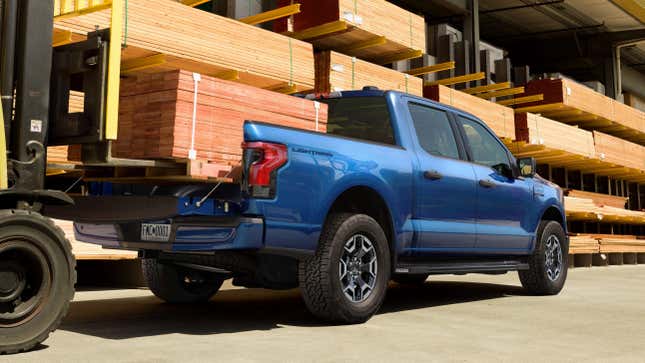
The EV pickup trucks are here, seemingly more everyday, but one of the biggest questions about EV pickups remains whether they will be good at some specific things that internal combustion engine trucks are purchased for: hauling and towing, specifically. In short-range use, hauling and towing seem like good solutions for EV trucks; long-range, not so much, given aerodynamics and the basic math of more weight requiring more power to move, especially at higher speeds.
There has been some testing in this regard, and I’m sure much more to come, because, when you talk to pickup truck owners who actually use their trucks to tow and haul things, in the transition to EVs, this is one of their biggest concerns.
AAA did their own, fairly limited test, recently, regarding hauling with a 2022 Ford F-150 Lightning, and the results were about what you’d expect. Maybe even better, if you expected range to fall off a cliff. Or maybe worse if you took automakers’ ranges for EV trucks at face value.
When loaded with 1,400 pounds of sandbags, 110 pounds shy of its maximum capacity, the Lightning’s range dropped from 278 miles to 210 miles, a reduction of 24.5%.
“Our testing revealed a significant range reduction, but it’s important to note that the Lightning was loaded to near its maximum capacity,” said Greg Brannon, director of AAA Automotive Engineering. “Most buyers will likely use their Lightning with a lighter load, resulting in a much smaller range reduction.”
AAA did their test at speeds from 5 to 80 mph, and also noted that on the highways, EV trucks that are hauling and towing will get even worse range than at lower speeds, because of aerodynamic limitations and, again, more power required to move more weight at a higher velocity.
All of this seems to suggest something we already knew — that EV pickups are probably not the ideal use case for battery-electric, at least in certain applications. Or at least the ones that many pickup truck owners like to think they need.